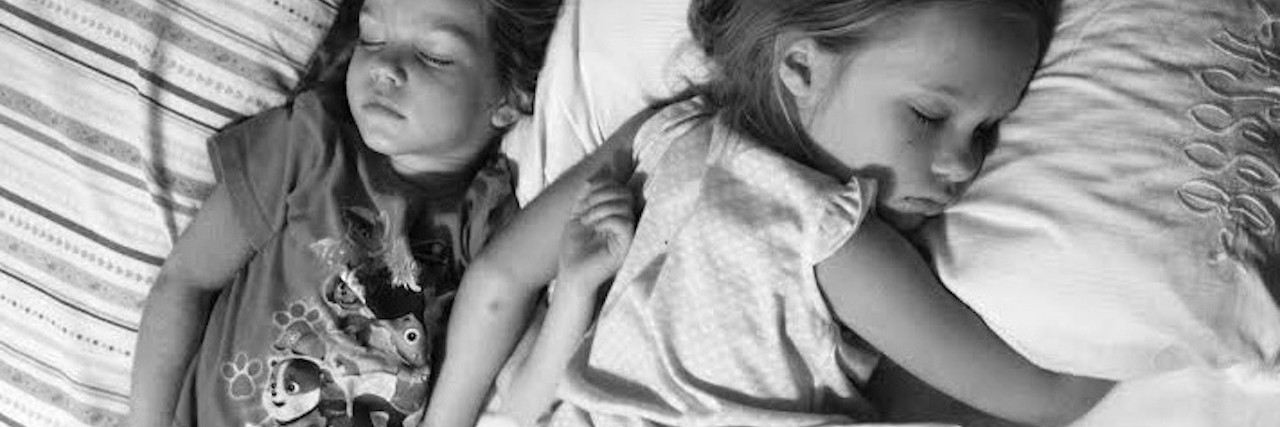The first time my daughter ever talked to me, really talked to me, was from under the covers, in the midst of our bedtime ritual. Hairwashing and teethbrushing and pajamas and stories. Bantering and bargaining with her sister. She started to sing a Christmas song but the words were her own. She was using the holiday melody to help move the words, which so often get stuck inside the complicated gears of her mind, to tell me she loved me and wanted me to stay with her. And for the first time in four years, I felt noticed, needed.
Autism has many potential tells. Sensory sensitivities and rigid thought patterns. Self-stimulating behaviors, repetitiveness, social delays, gastrointestinal issues and sleep disorders. We see some of this and none of this in varying degrees, but thankfully, sleep is not a problem for our eldest daughter. She goes to bed relatively easily and would sleep until late morning every day if it weren’t for the clamor of siblings.
Thankfully because bedtime in our home is essentially a series of battles fought upstairs and down; we become negotiators, defenders of “8 p.m.,” explaining the meaning and importance of sleep to three small people who want nothing to do with it. It is like this for the better part of an hour. It is pure folly. But once everything that needs to be cleaned has been cleaned, once the last bottle has been served and the last story read, once everyone has found their usual place for the night to fall… a quiet settles over our home.
They often fall asleep in our bed. It has become the go-to reward: to sleep in our room. They follow the same routines, but then crawl up and into our bed, bury themselves in the layers of pillows, sheets and comforter. Cotton and down. Bliss.
They settle quickly this way. The happiness of this reward must be overwhelming, and they are a precious mess of dangling arms and legs in no time. It is the perfect ending to a typically long and wonderful day, filled with the big emotions that characterize motherhood’s highs and lows and in-betweens.
Hours later, wrapped loosely around us, we carry them to their room and plant them in the coolness of their unopened beds. Their breathing is heavy and reliable. The same. You couldn’t tell neurotypical from anything. Autism is nowhere to be found.
I take great comfort in this. Sleep is the great equalizer. On bad days, it is the reminder that we get to start over tomorrow, that change and adjustments are possible. When my daughter sleeps, her body is still and calm and full of peace and vibrant dreams. Nothing is being measured or recorded. No prompting for attention or eye contact. No three-part directions to follow. When she sleeps, I imagine her taking apart the confusing structure of her time in our world and piecing it all back together in a shape that makes more sense. She’s just like anyone else when she is sleeping, no tics or tells. No IEPs or 504s, no social goals or gaps to close.
And I am just her mother, without concern or special needs to attend to. I get to remember what it is just to love her, simply and beautifully. Just: love her. For who she is and for who I am. A mother, a daughter, a wife, a sister, a woman, a girl…
Just people, navigating a vast and often perplexing world, trying to pinpoint what is positive and meaningful, trying to keep these things whole as we acclimate to the waters of disability. Trying to construct something useful with the pieces that don’t quite fit. Taking comfort in the hours of rest that are promised when the sun goes down, our daily bread, our dependence on tomorrow and another chance to take a few steps forward.
Follow this journey on Betty Sweet Writes.
Want to end the stigma around disability? Like us on Facebook.
And sign up for what we hope will be your favorite thing to read at night.



